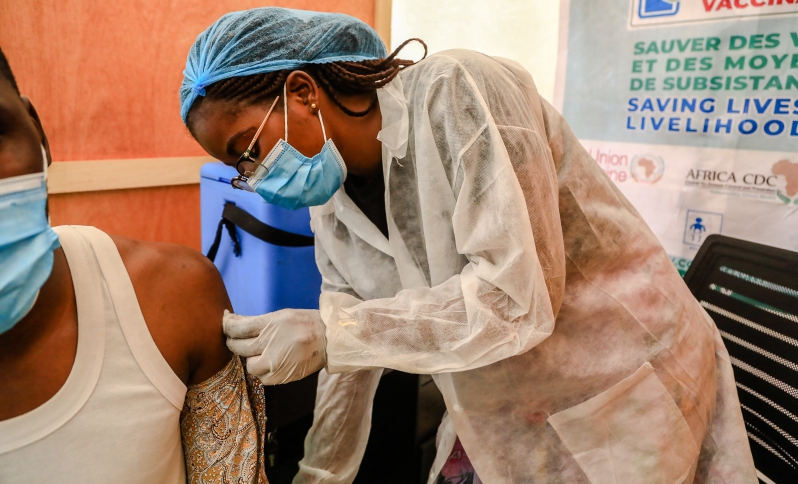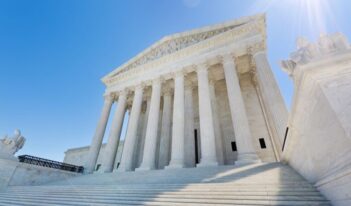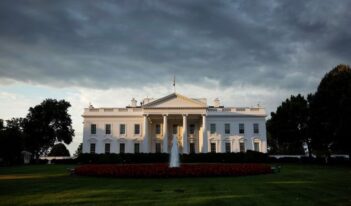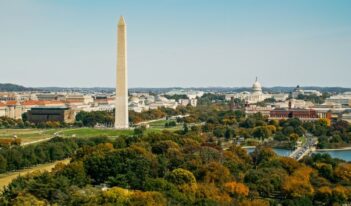
The Biden Administration should exert international and domestic pressure to waive COVID-19 vaccine patents.
“We can no longer rely on these big superpowers to come in and save us.”
These words of biotechnologist Emile Hendricks capture the sentiment of countries unable to pay for the same quantities of COVID-19 vaccines as wealthier countries.
In Africa, Hendricks and others are currently working, with backing from the World Health Organization (WHO), to reverse-engineer the Moderna COVID-19 vaccine because the pharmaceutical company has not released the intellectual property rights for its vaccines.
Moderna, Pfizer, BioNTech, and other vaccine manufacturers have profited billions of dollars by selling their patented vaccines to wealthy countries, while nations such as Nigeria and Ethiopia endure the world’s lowest vaccination rates.
But the Biden Administration—despite publicly supporting a waiver of COVID-19 vaccine patents—has done little to help under-vaccinated countries lift the patents.
The Office of the United States Trade Representative (USTR)—the executive office that negotiates international trade and investments—has not pushed for an internationally proposed waiver of vaccine patents. South Africa, India, and other countries proposed such a waiver in 2020 at the World Trade Organization (WTO)—an international body that regulates international trade—but the USTR has yet to support the patent waiver as it was initially proposed. Nor has the office engaged in negotiations with the waiver’s opponents, such as the European Union.
With the emergence of the Omicron variant, members of the WTO indefinitely postponed a conference scheduled for November 26 that would have reinitiated discussions about the waiver. Critics lambasted the WTO for postponing the conference at a time when the Global South remains disproportionately unvaccinated and vulnerable to the Omicron variant.
Although the WTO conference was postponed, the Biden Administration can still push for a virtual general-member meeting at the United Nations (UN). General members at the UN can pass non-binding international recommendations by majority vote. The UN general members cannot waive the vaccine patents like the members of the WTO can, but a UN meeting could highlight the waiver debate and increase international pressure on countries that oppose the waiver.
International pressure from the Biden Administration can rebalance the waiver debate, but the Administration can also use domestic strategies to disclose patented vaccine technology.
For instance, the United States can use Moderna patents and Pfizer-BioNTech patents —which are licensed under U.S. patent law—without the companies’ permission to increase global vaccine production. Scholars argue that the Biden Administration can invoke a specific provision in patent law that would allow the government to take control of a patent. In effect, the Administration could override the pharmaceutical companies’ patents and publicly release the technology, enabling other manufacturers to ramp up vaccine production to address the global shortage.
The Biden Administration might be hesitant to use this option because of concerns about stifling private innovation and violating a constitutional prohibition against governmental takings of private property. Experts note, however, that there are still private incentives to innovate—such as grants and prizes for important inventions—and government use of a patent does not unconstitutionally deprive patent holders of the ability to use their own patents.
The Biden Administration may also threaten Moderna with a patent infringement lawsuit to draw Moderna to the negotiation table. The United States co-owns a patent on coronavirus vaccine technology, and Moderna and Pfizer, among others, rely on the technology to make their COVID-19 vaccines. Unlike Pfizer, Moderna has used the patent without paying for the license. Experts predict that an infringement suit could cost Moderna millions or even billions of dollars. Alternatively, experts argue that the Biden Administration should leverage a potential lawsuit to persuade Moderna to disclose its “patents, trade secrets, and other intellectual property” to other vaccine manufacturers.
Those opposing a vaccine waiver condemn President Joseph R. Biden’s endorsements in light of his failure to follow through with significant international or domestic action. The pharmaceutical sector argues that a waiver will not increase vaccine production because there are limited raw materials to make vaccines. The creation of vaccines, however, depends on numerous materials and technologies, which themselves may be artificially limited in the market because of patent protections.
Opponents of the patent waivers also claim that developing countries do not have the infrastructure to manufacture complex COVID-19 vaccines. And, they argue that waiving patent rights will discourage private investors from funding future vaccines. This position, however, downplays the existing and growing manufacturing infrastructure in developing countries such as India. In addition, discouraging financial actors from investing in vaccine development will not radically gut vaccine innovation because U.S. taxpayers—not private investors—funded the bulk of COVID-19 vaccine development.
Some researchers allege that vaccine hesitancy—partially caused by concerns about vaccine side effects and distrust of government and Western products—is another factor limiting vaccination rates in poorer countries. Other researchers, however, found that citizens in low- and middle-income countries, such as Nepal and Rwanda, exhibited less vaccine hesitancy than did U.S. citizens. Moreover, inequitable distribution of vaccines reinforces distrust of the wealthy pharmaceutical companies and nations distributing the vaccines, and prolonging non-vaccination causes complacency among the unvaccinated who have avoided infection so far. Waiving vaccine patents would increase vaccine production in poorer countries and likely decrease hesitancy because countries would no longer need to depend on distrusted pharmaceutical companies and wealthy nations to vaccinate their citizens.
WHO’s global vaccination program, which depends heavily on pharmaceutical companies’ vaccine donations, demonstrates the folly of relying on the private sector. The program has severely failed to reach its goal of vaccinating 20 percent of each country’s population. With the rise of the Omicron variant and pharmaceutical companies continuing to profit from the pandemic, it is time for the Biden Administration to exert international and domestic pressure and to fulfill its endorsement of a COVID-19 vaccine patent waiver.
“Our failure to put vaccines into the arms of people in the developing world is now coming back to haunt us,” explains WHO Ambassador Gordon Brown in reference to the Omicron variant. “We were forewarned—and yet here we are.”



